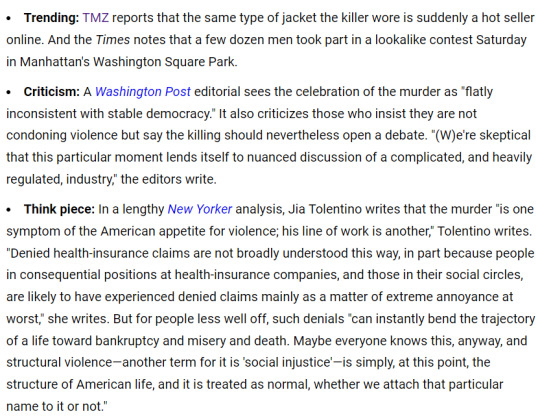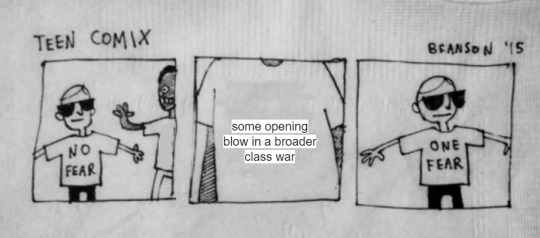#monoloth point stands
Explore tagged Tumblr posts
Text
ooooh, finally, i get 2001 A Space Odyssey

HELL YES, look how scared they are at the public's reaction, this is amazing




45K notes
·
View notes
Text
dilemma // am i simply just culturally muslim?
This whole fighting for justice thing is really tiring sometimes. Even when what you're doing is trying to defend human rights, there will always be people who come knocking into your house saying that the way that you're trying to do it is wrong. I feel like it'd be easier if I wasn't Muslim, that way at least I don't have to experience the crushing guilt whenever I read something that I know my family will find outrageous, and finding myself thinking that this person's way of thinking can be understandable. Today, that thing is the argument that we should be able to reform Islam, and that, my friend, is a very controversial issue even to me, who is so far from what my parents hope their Muslim daughter would be. As it turns out, what the person meant to say when they say "reform Islam" is not what I was thinking, which is a bunch of people tearing into the Koran and deleting violent verses from it, which is scary. One of the signs of the world coming to and end according to Islam is when the Koran starts to disappear, and dude, I really don't want to be alive when the end comes because I'm not ready to pay for my sins. ...and even as we're speaking, I'm making any more sins because I'm doing, theoritically, what a Muslim shouldn't do--questioning the perfectness of their faith. And I know some will come to my door and tell that I can, as a person I have the rights to thinking and opinions, but I just can't shake the feeling that I shouldn't, you know? Oh, God, and what I did was make me seem oppressed, which isn't helping to the problem. Jeez. Why is trying to do the right thing so hard? Anyway, turns out what they mean by reform is simply making it clear that Islam is "not a monolothic idea" and that Islam is practiced in a lot of different ways and that no one should view Muslims as just this one perfect person who prays five times a day and reads the Koran daily. (That is the kind of Muslim that I want to be, though.) They do have a point, and I agree with them. Because Islam is practiced differently according to where you are. Indonesia is the biggest Muslim country and we don't do the thing that Saudi Arabia claims the Sharia Law. Because Muslims do come in various forms. Asians, Europeans, Africans, they can be Muslim. My only problem with this person is that they call Islam an idea and that's not... really what I think it is. Because idea implies that it comes from something human, while Islam comes from a pure place that humans can't touch. It comes from God. The other thing that they say is that I don't initially agree with, but eventually see the point is that ISIS is Islam. They explain later that what they mean is that ISIS comes from a very wrong interpretation of the Koran. And it's all fun and games and then they say, "Let's be honest. A lot of religions are violent," and goes to qute a very misplaced violent sounding verse in the post, and I just sort of facepalm because that totally defeats her point. A lot of verses in the Koran, when taken out of context, can sound super disturbing, but that's why the Koran has chapters, because each verse is specific to the situation it represents. It's written that Muslims are allowed to fight non-believers, but that verse comes from the chapter when Muslims were just betrayed by them. So of course we're allowed to, because at the time it is necessary. But then I realize that was kind of their point. ISIS inherently took the most violent-sounding verses to justify the things that they did, just like the Taliban and the Boko Haram did. Just like why Muslims in Indonesia fought so hard to imprison Ahok, who may or may not have said one bad thing about Islam, just like they see what they're doing as jihad and completely demonize the entire Chinese minority population as bad. When it comes down to it, I realize the Muslims--these specific groups--are just lost in translation. Maybe that's why the Koran isn't allowed to be translated into multiple languages like the Bible, in fear of mis-translation. But then, it has happened. And then, replying to the posts about reforming Islam, someone said, "Discussions criticizing Islam shouldn't be stopped just because one is afraid of being called racist or Islamophobic." That doesn't sit right with me because I believe that Islam doesn't need corrections. It's like, there's this book that is sacred and holy and it comes from God, and then some human brought a pen and wrote over it. It wouldn't be God's work anymore. Honestly, if I was sitting in a room and people start talking about ISIS, I'd back the fuck out (unless I'm in a MUN conference, of course) because that topic makes me uncomfortable. I hate it, I want it to stop, I want the people who are suffering because of them to be free and happy, but any discussions regarding ISIS would more often than not end with the conclusion that Islam is not peaceful and violent. If I sit there longer, and let them criticize Islam? Yeah, I'd die in that place. But am I adding to the problem by saying this? I can't just repeat over and over that any bad things done by Muslims in the name of Islam is just because of the bad interpretations of the Koran. But people will eventually find arguments to counter it, and then at the end of the day I will have to face the idea that maybe my faith isn't perfect at all. And I don't want to believe that, because by Good Muslim Law I should believe that my faith is first and foremost the most perfect. When I don't, am I really a Muslim at all? They pick misogyny as an example for things to criticize in Islam, and I freeze up, because I'm not well educated in that matter. I hesitate to learn about this because I'm afraid I would find the things that people say about how sexist Islam is to be true. Because the time I tried to question an Islamic Studies teacher in school about one thing that I read on the internet--that a woman should always obey to her husband's sexual needs--she said that it's really the way things should be. And then I got really angry, because hell no I have the right to say no even to my husband and any acts made against my consent should be considered rape. She got really surprised that I would think that way, and man, maybe she's always in the mood for it, but what about other women who were arranged into marriage? Who didn't have any choice but to obey? Shouldn't they have the right to reject? And that verse about how men are allowed to beat their wives--how am I supposed to stand by this? How am I supposed to say that my religion is equal with their treatment of men and women, when the mahar is meant to exchange my body for pleasure? For sex to become halal, for my body to become halal for men's consumption? I do not want to be a property. It irked me how little I know about women's rights in Islam. I know that in terms of pursuing education, men and women were the same. It was compulsory for both. But they start talking about hijab and how it's a choice, and I just kinda wince because I agree and kind of don't agree, and then it made me feel bad because I don't want to agree but I also do. I hate that a lot of sheiks use hijab as an argument to protect women from rape, but shouldn't they also tell men to not rape in the first place? Shouldn't you teach your sons about respecting women, so they don't grow up to be rapists? Why are women tasked to cover up, and men walk free? When women report misconduct, they get laughed at, jeered at, blamed for the things that they're wearing? Then why do rapes still happen in Saudi Arabia? I hate that sheiks use guilt to make us wear the hijab--fear hell, fear God, fear punishment, why not tell us what we get in turn if we wear the hijab? Why not grace us stories about jannah? And it's like a little vicious cycle. I do it all over again. Every time I open the internet, a new article comes up. Someone suggested a view that sounded reasonable but also I know to be very contradictive to what I should believe, I feel super shitty and guilty, and then I do it again until I feel physically tired. It's a scary little thing, because the more time I spend as a Muslim, the more dilemmas I face, the more questionable things I find. I keep hoping for me to find hidayah, but I don't even know even where to start, because I have strayed too far away from God to actually want hidayah, but at the same time... if somebody were to chop up my religion I'd be punching them in defense, but do I have the right to? Am I Muslim enough to say that? Or am I just simply culturally Muslim? Leftist, far right, moderate--man, I don't even know. I just want ISIS to stop being a real thing so I can go back to blogging normally about bad puns and memes.
0 notes